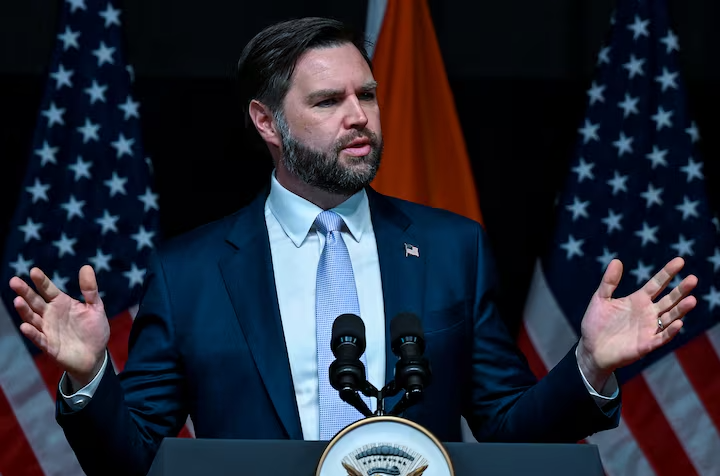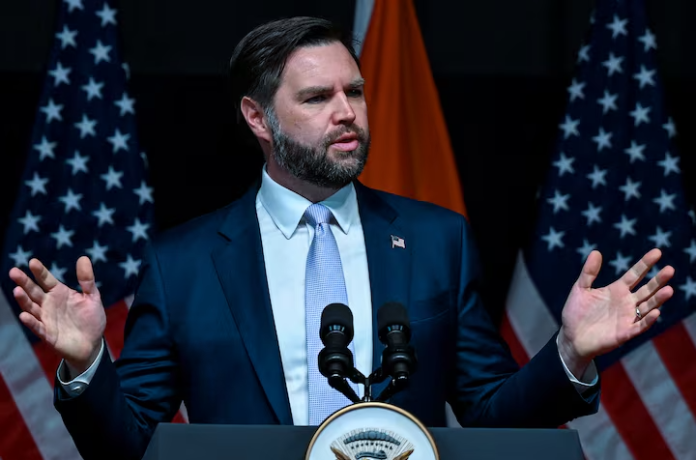During a tense period of rising hostilities between India and Pakistan, U.S. Vice President JD Vance has made headlines with his strikingly hands-off remarks. Speaking on Fox News’ The Story with Martha MacCallum, Vance stated that while the United States hopes for peace between the two nuclear-armed nations, any war that erupts would be “none of our business.”
“We want this thing to de-escalate as quickly as possible,” Vance said. “But we can’t control these countries. What we can do is encourage them to calm down a little, but we’re not going to get involved in a war that has nothing to do with our national interests.”
This statement comes amid a dangerous flare-up between India and Pakistan, who have long had a fragile relationship over the disputed region of Kashmir. On April 22, an attack by Islamist militants in India-administered Kashmir left 26 people dead. India quickly pointed fingers at Pakistan, which denied involvement and called for an independent investigation.
In the days since, tensions have escalated sharply. Cross-border drone attacks, gunfire exchanges, and retaliatory strikes have led to at least four dozen deaths over just two days. Pakistan’s Defense Minister warned that further retaliation was “increasingly certain,” signaling no immediate end to the violence.
Despite the growing crisis, the Biden-Trump administration appears cautious about direct involvement. The U.S. has maintained diplomatic contact with both countries, with Secretary of State Marco Rubio holding phone conversations with Pakistan’s Prime Minister and India’s Foreign Minister, urging both sides to engage in dialogue and avoid further escalation.
President Donald Trump also weighed in, calling the situation “a shame” and expressing his hope that India and Pakistan will “stop now” before things spiral further. He offered diplomatic support but stopped short of any promises of direct intervention.

Vance’s remarks suggest a broader shift in U.S. foreign policy focus. Analysts say America’s deep involvement in ongoing conflicts in Ukraine and Gaza may limit its capacity—or willingness—to mediate another international crisis. While India is considered a strategic ally to counter China’s growing influence, Pakistan remains a U.S. partner, though its significance has waned since the U.S. withdrawal from Afghanistan in 2021.
“We hope and expect this won’t spiral into a broader regional war—or worse, a nuclear conflict,” Vance added.
His blunt comments have sparked debates among foreign policy experts. While some appreciate the realist approach, others warn that an indifferent U.S. stance could embolden hardliners on both sides and increase the risk of full-scale war.
As the world watches this volatile situation unfold, the question remains: can India and Pakistan step back from the brink—or will the lack of external pressure allow tensions to ignite further?



